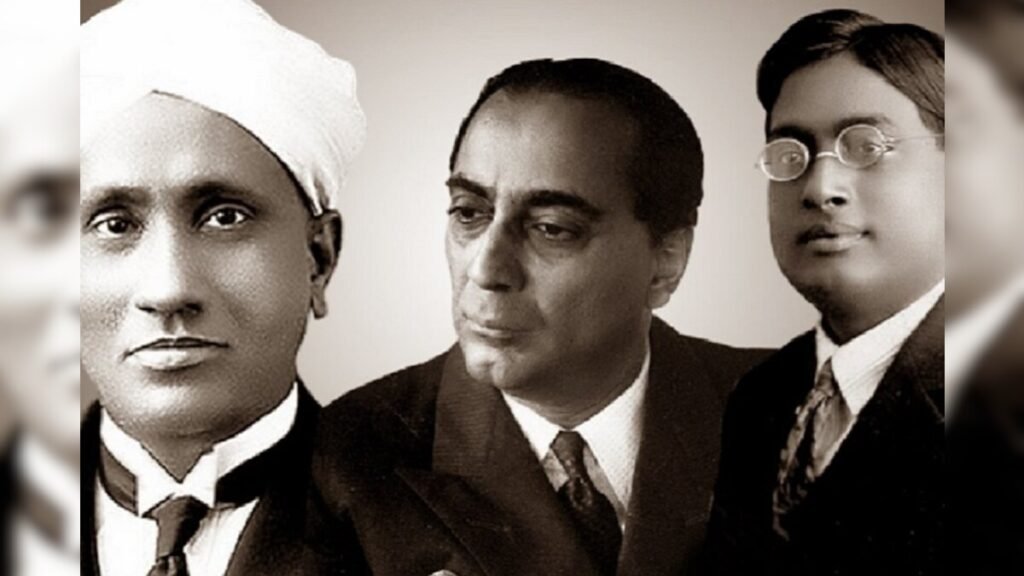Scientists of India
Science and innovations have always played a significant role in India. Technologies and science have traditionally remained India’s fastest-growing areas. India is now rated 3rd worldwide for being the most appealing economic hub for technical operations, indicating that the country’s scientific disciplines have improved greatly.

In the 21st century, India has surged to the pinnacle of science research ratings in the world. Countless Indian scientists labored in the field and accomplished the unthinkable, in order to get India to this status. Following are the top ten scientists in India, who have managed to achieve greatness in the field of science.
Top 10 Indian Scientists
C V Raman
In 1930, C V Raman was awarded the Nobel Prize in Physics for his groundbreaking studies on light dispersion. Born in Tiruchirapalli on November 7, 1888, he became the 1st Asian and a non-White person to be awarded a Nobel Prize in science. Raman also studied acoustic instrument dynamics.
Acharya Prafulla Chandra Ray
Acharya Prafulla Chandra Ray is a renowned Indian researcher who established Bengal Chemicals and Pharmaceuticals, India’s 1st pharma enterprise. He has also been dubbed the “Father of Chemical Science” in India, in addition to being instrumental in establishing the very first advanced Indian research school in Chemistry.
Homi J Bhabha
Homi Jehangir Bhabha, born on October 30, 1909, in Bombay, has been the founding father of India’s nuclear program. His contributions to quantum theory and cosmic rays would be recognized forever. He was instrumental in convincing top Congress Party leaders, more importantly, Jawaharlal Nehru, to launch the massive nuclear program.
Asima Chatterjee
Asima Chatterjee is a well-known Indian female scholar who had gained considerable advances in organic chemistry and phytomedicine. She was born in 1917 and she became the 1st Indian woman to receive a Ph.D. in science. Asima turned her attention to organic product chemistry, creating anti-epileptic and anti-malarial medications such as Ayush-56 with chemicals derived from Indian pharmaceutical plant species.
M Visvesvaraya
From 1912 until 1918, Sir Mokshagundam Visvesvaraya was the Dewan of Mysore. He was an academician, civil engineer, and diplomat. He is credited with inventing the automatic sluice gates and the blocks irrigation facilities, both of which are regarded as technical marvels even now. Engineer’s Day is celebrated in India on September 15, his birthdate.
S Ramanujan
Srinivasa Ramanujan Iyengar was a well-known Indian mathematician who made significant discoveries in the discipline of mathematics over his 32-year career. Ramanujan created key ideas such as number theory, infinite series, continuing fractions, and so on. The intriguing thing is that Ramanujan received no formal mathematical education and all of his findings were discovered solely by instinct.
Satyendra Nath Bose
SN Bose was an Indian scientist who specialized in quantum mechanics and was born on January 1, 1894, in Calcutta. In addition, he is best known for his contributions to the category of particles known as ‘bosons’ that were dubbed after him by Paul Dirac to honor his contributions to the subject.
Acharya Jagadish Chandra Bose
Acharya J.C. Bose was a multi-talented individual. He had been an accomplished personality in the field of mathematics, physics, biology, botany, and even archaeology. He was a forerunner in the research of microwave and radio frequency optics, contributed significantly to plant research, and established the groundwork for empirical research on the Indian peninsula.
Vikram Sarabhai
Vikram Sarabhai, known as the Father of India’s Space Research Programme, played a key role in the formation of the Indian Space Research Organization (ISRO). In 1966, he was granted the Padma Bhushan, and following his demise in 1972, he was conferred the Padma Vubhushan.
A P J Abdul Kalam
Former Indian President Avul Pakir Jainulabdeen Abdul Kalam served as an aeronautical engineer for DRDO and ISRO. Kalam was named project director of the nation’s first aboriginal satellite launch vehicle (SLV-III) in 1969, and the Rohini satellite was efficiently deployed into near-Earth orbit on July 1980.

